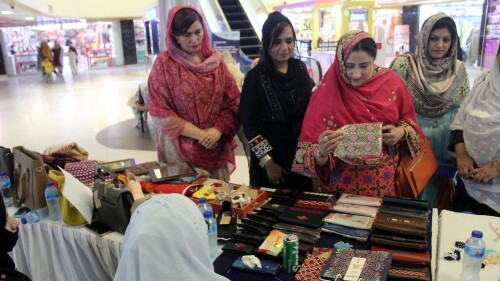The power struggles among Sunni states in the Middle East now unfolds in Western cities. Saudi Arabia and the United Arab Emirates long have funded imams, mosques, and charities abroad, while Turkey and Qatar support rival Islamist networks. Each camp considers religion to be instrumental to statecraft: Riyadh and Abu Dhabi see the Muslim Brotherhood as “the fundamental threat” to their order, while Ankara and Doha support Brotherhood-aligned actors.The practical implication is a debate about mosque financing, preacher training, youth programming, and Islamic nongovernmental organizations in Europe and North America—including in American cities like New York and Washington.
Persian Gulf countries have spent money in the last several decades building mosques and cultural centers. Saudi-linked charities—in particular, the Muslim World League and its affiliate, the World Assembly of Muslim Youth—have offices in Europe and North America, and they finance mosque construction, Arabic schools, and community programming.
Doha affiliates like Qatar Charity and the Qatar Foundation have funded Islamic centers in France, Italy, Switzerland, and beyond.
Their aim is to export conservative Wahhabi Islam. For example, the city of Riyadh leased the Grand Mosque in Brussels in 1969, and Saudi-backed imams then dominated its programming for decades. Qatar similarly wields soft power. Documents leaked to investigative reporters reveal that over eight years, Doha invested roughly $102 million in about 140 mosque and school projects in Europe. Investigative observers refer to 90 percent of Qatari funds to the European Union going through networks aligned with the Brotherhood as Qatar likely uses its wealth to “buy influence in Europe.” Doha affiliates like Qatar Charity and the Qatar Foundation have funded Islamic centers in France, Italy, Switzerland, and beyond.
Turkey similarly has linked religious education and construction to influence. Under President Recep Tayyip Erdoğan, the Directorate of Religious Affairs (Diyanet) has moved into foreign mosques, construction, and foreign imam training. For instance, in 2016, Turkey used $110 million to fund the Diyanet Center of America, a mosque complex outside Washington, D.C., that accommodates 4,500 participants. The Diyanet’s 2025 budget is $3.5 billion.
Competing states also export ideology via people and programs. Historically, Saudi Arabia ran cultural offices in its embassies and helped to send preachers to local mosques. Its affiliates, like the Muslim World League and the World Assembly of Muslim Youth, have held youth soccer tournaments and sponsored Islamic camps and study trips to Saudi Arabia to indoctrinate young Western Muslims. The United Arab Emirates similarly subsidizes scholars and has overseas training programs to promote a state-endorsed Islam.
Turkey and Qatar utilize their own networks. The Diyanet is probably the most transparent: It has hired thousands of imams in Turkey on a civil‑service basis and has dispatched many to diaspora communities. For example, Germany has had almost 100 Diyanet-paid imams working in mosques the Turkish-Islam union manages. At the end of 2023, Germany worked with Turkey to taper that program and train 100 imams locally each year to have leaders “speak our language” and share German values.
The conflict between Gulf states for influence has real-life consequences for Muslim communities in the West.
Qatar uses charities and nongovernmental organizations to expand its influence. Internal documents show one way in which Qatar Charity—founded by the ruling family—accounted for the majority of funding for European mosque projects. It funded Islamic centers where research teams later identified Brotherhood literature on their library shelves. Qatar provides academic fellowships and university funding as well.
The conflict between Gulf states for influence has real-life consequences for Muslim communities in the West. Critics argue that when foreign political contests resonate through mosques, communities can rip apart. Congregations can be split into pro-Saudi/United Arab Emirates or pro-Turkey/Qatar factions, or factions of secularists and Islamists, which is not helpful to craft a single voice. Host governments are also concerned about radicalization. European authorities talk about instances when millions of dollars in foreign Gulf charity funding went into mosques where preachers called for jihad abroad. A European Union official emphasized government worries about the critical importance of huge foreign donations generating “parallel societies” of Muslims who do not align with Western liberalism.
In sum, the “war of mosques” metamorphoses smaller conflicts into larger geo-political battles. In total, competing Middle Eastern patrons export intractable regional conflicts in host nations.







